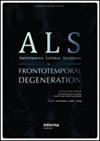On Witnessing a Riot
引用次数: 0
Abstract
In the midst of the COVID-19 pandemic, the murder of George Floyd by Minneapolis police has sparked protests and riots around the world. The policing of the pandemic reveals the racial biases inherent to law enforcement and state-led discipline, laying bare ongoing infrastructural inequalities that render racialized subjects more vulnerable to premature death at the hands of police and public health systems alike. With the video embedded in the article, we guide readers through thirty-nine seconds of rioting in Los Angeles on May 31, 2020, shot on a mobile phone and circulated virally on Twitter. The affected body of the witness indexes both the intensity of the event and the embodied experience of the witness, establishing a relation between the two. The experiential aesthetics of the video exceeds the content and this affectivity circulates with its mediation and movement through networked platforms. Such forms of affective witnessing allow for an attunement to political struggle that occurs through what Hortense Spillers would call the analytic of the flesh. Thinking at the intersection of Black studies, affect theory, and media studies, we argue that the flesh is an affective register crucial to the building of global anti-racist solidarities towards abolition.关于目睹暴乱
在新冠肺炎大流行期间,明尼阿波利斯警察杀害乔治·弗洛伊德(George Floyd)的事件在世界各地引发了抗议和骚乱。大流行的警务工作揭示了执法和国家主导的纪律中固有的种族偏见,暴露了持续存在的基础设施不平等,这些不平等使种族化的主体更容易在警察和公共卫生系统手中过早死亡。通过文章中嵌入的视频,我们引导读者了解2020年5月31日在洛杉矶发生的39秒骚乱,这是用手机拍摄并在推特上病毒式传播的。证人的受感体既反映了事件的强度,也反映了证人的具体经验,建立了两者之间的关系。视频的体验美学超越了内容,这种情感通过网络平台的中介和运动而循环。这种形式的情感见证允许对政治斗争的调谐,这种调谐通过Hortense Spillers所说的对肉体的分析而发生。在黑人研究、情感理论和媒体研究的交叉思考中,我们认为肉体是一种情感域,对于建立全球反种族主义团结一致,争取废除种族主义至关重要。
本文章由计算机程序翻译,如有差异,请以英文原文为准。
求助全文
约1分钟内获得全文
求助全文

 求助内容:
求助内容: 应助结果提醒方式:
应助结果提醒方式:


